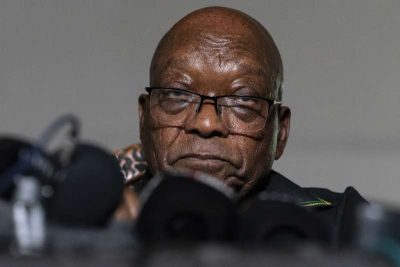South Africa: Judge dismisses Jacob Zuma’s effort to delay corruption trial
A South African court has dismissed former President Jacob Zuma’s attempt to remove the prosecutor from his upcoming corruption trial.
The dismissal came on Wednesday by Pietermaritzburg High Court Judge Piet Koen, on the grounds that Zuma’s attempt to remove the prosecutor “lacks reasonable prospects of success”.
Zuma’s lawyers had been appealing an earlier ruling rejecting his attempt to have lead prosecutor Billy Downer taken off the corruption case.
“The application for leave to appeal and all related applications … are all dismissed,” Koen said in court. “The criminal trial shall proceed.”
Zuma, overthrown as South Africa’s president in 2018 by his party, the ruling African National Congress, amid wide-ranging allegations of corruption during his nine-year term, had accused Downer of bias. His lawyers accused Downer of leaking confidential case information to the media and being a witness in a separate case against the former leader by the opposition party, the Democratic Alliance.
Efforts to have the prosecutor removed have delayed the start of Zuma’s corruption trial, which is now scheduled to begin on April 11.
In May 2021, the trial began after repeated postponements as Zuma’s legal team battled to have the charges dropped. The former leader faces 16 counts of fraud, corruption, and racketeering related to the purchase of fighter jets, patrol boats, and equipment from five European arms firms.
He also stands accused of receiving bribes from French arms manufacturer Thales through his former financial adviser Schabir Shaik. Downer led the prosecution that resulted in Shaik’s conviction and sentencing on related charges in 2005.
Zuma’s lawyers still have the option to petition the country’s Supreme Court of Appeal, which could further delay the corruption trial.
In a separate case, Zuma was sentenced to 15 months imprisonment for defying a Constitutional Court order to testify at a state-backed commission of inquiry on corruption allegations during his tenure.
His imprisonment last year sparked riots in South Africa’s KwaZulu-Natal and Gauteng provinces in which more than 300 died and there was an estimated $1.7bn damage in property losses.
In September, Zuma was released from prison on medical parole, for an undisclosed ailment. Three months later, the courts declared his parole invalid and ordered him to return to prison, a decision that his lawyers are appealing.


